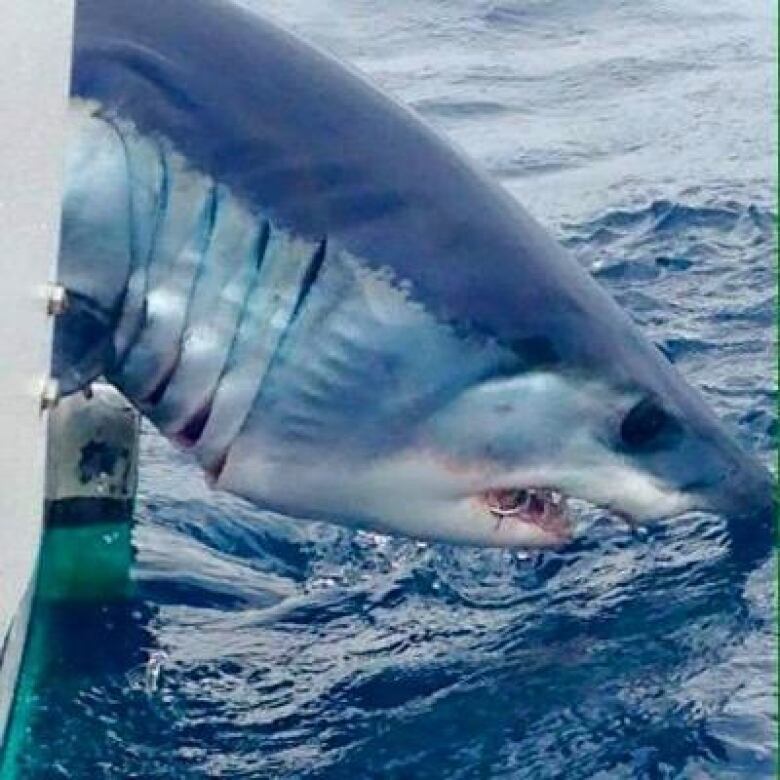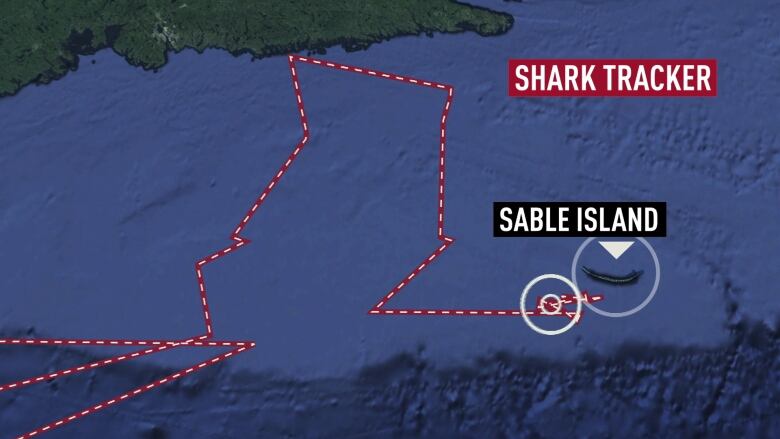Mako shark tracked swimming off coast of Sable Island
Online tracking system charts shark's movements in real time

A group of scientists tagged the two-metre long mako shark on July 18. In mid-August, Carl swam north into Nova Scotia waters, even coming close to the shore near Taylors Head.
The shark appears to have settled near Sable Island, at least for now.
"Carl is a good example of a species that we've exploited for years and one we have to learn about," said GregorySkomal, senior fisheries scientist with Massachusetts Marine Fisheries, who headed up the team that tagged the female shark.
"We learn about the movements of this incredible species and that will help us protect the animal in the long run."
Skomal said Carl is likely attracted to the area around Sable Island for its rich feeding options.
OCEARCH, a non-profit organization, tracks Carl and other shark's movements through its global shark tracker.

Researchers use the information, but anyone can download an app and follow Carl's course on a smartphone or through Carl's Twitter profile, which frequently posts the shark's location.
According to Carl's OCEARCH bio, she is a female shark that weighs about 68 kilograms and travels about 56 kilometres every 72 hours.
They're not a danger. and I think Carl is helping to deliver that message.- GregorySkomal, Massachusetts Marine Fisheries
Skomal said Carl's social media presence may also help reduce some of the stigma that is associated with the species. He hopes people are gaining a new appreciation for sharks.
"With that appreciation I think is respect and understanding and desire to protect them. All too often sharks are maligned as being man eaters and that's simply not the case," said Skomal, who was speaking from a boat off Chatham, Mass.,where he was in the process of tagging white sharks.
He said mako sharks have rarely attacked humans andtypically stay in ocean waters, far from where people swim.
"They're not a danger. and I think Carl is helping to deliver that message," he said.
Scientists have been tagging mako sharks for decades, but the real-time technology allows them to define the shark's habitat and migratory patterns, said Skomal.
"That allows us to put fishery conservation and management measures in place that allow for us to balance between harvesting this species and protecting it at the same time."
The shark's name honours Carl Darenberg, who Skomal said was a supporter of a catch and release shark tournament. He died last winter.












_(720p).jpg)


 OFFICIAL HD MUSIC VIDEO.jpg)
.jpg)



























































































